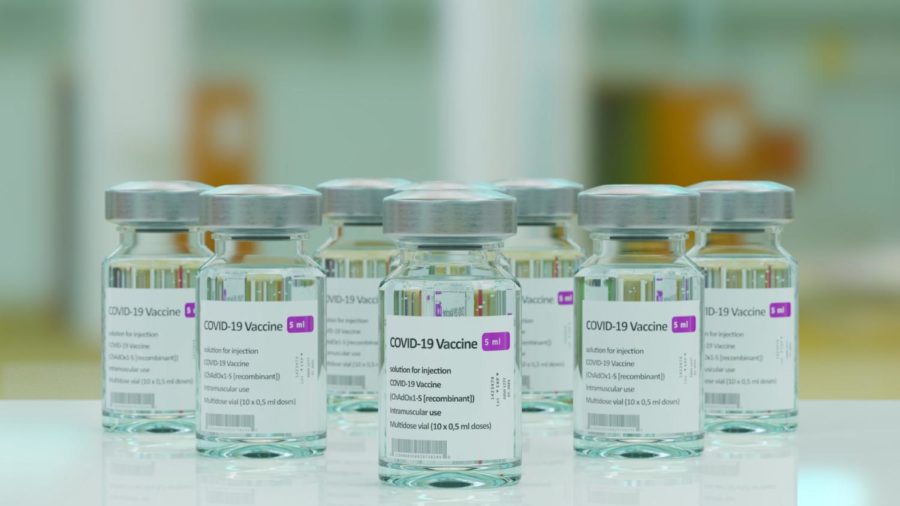Editorial: Shedding light on the delta variant
The ISD Editorial Board examines the most current information regarding the delta variant of COVID-19 and whether vaccines have an effect on the more transmissible strain.
August 8, 2021
Editor’s Note: Editorials are representative of the views of all Editorial Board members. One or two members will compile these views and write an editorial.
For many, it felt like we had finally defeated COVID-19. The summer of 2021 was filled with news of rising vaccinations, plummeting infections and the end of masks. But as we got into July, headlines with less positive news began to appear; a new version of the virus named the delta variant was quickly spreading and forcing localities to put precautions back in place. What is the delta variant, and what does it mean for the future of the persistent COVID-19 pandemic?
What is the delta variant?
The delta strain is a mutation of the original COVID-19 virus that began circling the globe in late 2019. This variant of COVID-19 was originally discovered in India, with the earliest sample of it being registered in October 2020. It was often referred to as the Indian variant, or B 1.617.2, before May 2021 when it was given its official name by the World Health Organization (WHO). It was designated as a variant of concern in the same month.
Delta is not the first variant to be named concerning. It joins the alpha, beta and gamma variants, which originated in the United Kingdom, South Africa and Brazil, respectively.
Currently, the delta variation is the dominant virus.
The delta strain became the dominant COVID variant in the United States in early July and has only expanded its lead since then. By July 22, the delta strain made up 83 percent of new COVID cases in the U.S.
What is different about the delta variant?
A new mutation of the virus brings new traits that experts must seek out and analyze. There is not enough research on the delta variant to make concrete conclusions on its characteristics at the moment, but we have some early studies that shed light on the new dominant strain.
The delta strain appears to be the most concerning strain circulating, as it is much more transmissible than previous strains and appears to be more likely to hospitalize an infected person. Early reports show delta to be 50 percent more transmissible than the alpha variant. The alpha strain was already 40 to 80 percent more transmissible than the original virus and made up the majority of American cases in early 2021. In simpler terms, a person carrying the original virus would be expected to spread the illness to about 2.5 people; the delta variant would be expected to spread to four people. This allows delta to spread faster than ebola, smallpox and the 1918 influenza outbreak.
Delta also may present a much higher hospitalization chance. One study shows delta may send twice as many people to the hospital.
Does a vaccine help against delta?
In late July, a Centers for Disease Control and Prevention (CDC) report detailed an outbreak that involved a large number of vaccinated people. The report spawned many headlines suggesting the vaccine was ineffective against the delta variant and in turn fueled anti-vaccine sentiment. However, an anti-vaccine interpretation of the CDC report ignores the most important parts of that report and other studies involving the vaccine and the delta variant.
The CDC report goes out of its way to say the incident did not provide enough evidence to determine the effectiveness of the vaccine against the delta variant. Meanwhile, multiple studies show that the vaccines currently available continue to have a high level of success in preventing both infections and hospitalizations.
Currently, a range of studies has found that vaccines, typically the Pfizer-BioNTech vaccine, provide between 64 percent and 88 percent protection against infection and 96 percent protection against hospitalization. This is a lower level of protection when compared to the alpha variant, but still a high level overall.
What is the current guidance from the CDC?
With COVID infections once again rising, the CDC has revised its guidance for vaccinated individuals. Walking back on updates made earlier in summer 2021, the CDC now recommends vaccinated people wear masks indoors if they are in an area with high rates of transmission. At this point in time, a large portion of the country and Iowa have high levels of transmission. This new guidance comes after evidence that a vaccinated person who has a breakthrough infection can spread the virus as easily as an unvaccinated person.
However, as NPR explains, this does not mean a vaccinated person is as generally transmissible as an unvaccinated person. But, if a vaccinated person does become infected against the odds, there is a period of time that they have the same amount of virus in their nose and throat as an unvaccinated person. This period of transmissibility is much shorter for a vaccinated person.
Conclusions
The delta variant is a mutated form of the COVID-19 virus that the world has been grappling with. Early evidence suggests that this form of the virus is significantly more transmissible and has a higher chance of sending an infected person to the hospital than previous strains.
While the delta strain may be slightly “resistant” to the current vaccines, vaccination is still the best way to prevent yourself from becoming infected. Due to this increased resistance, however, the CDC recommends that everyone, regardless of vaccination status, should mask up in indoor settings. Much remains to be discovered about the delta variant, but for now, we must use the best information we have available to us and take the proper precautions to limit its impact.

















